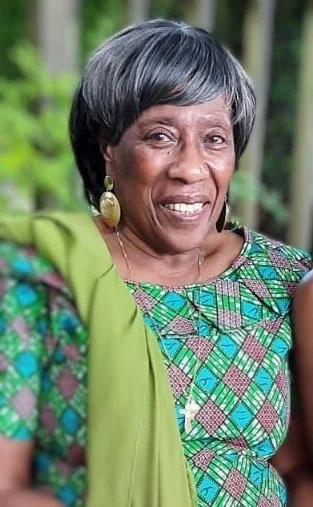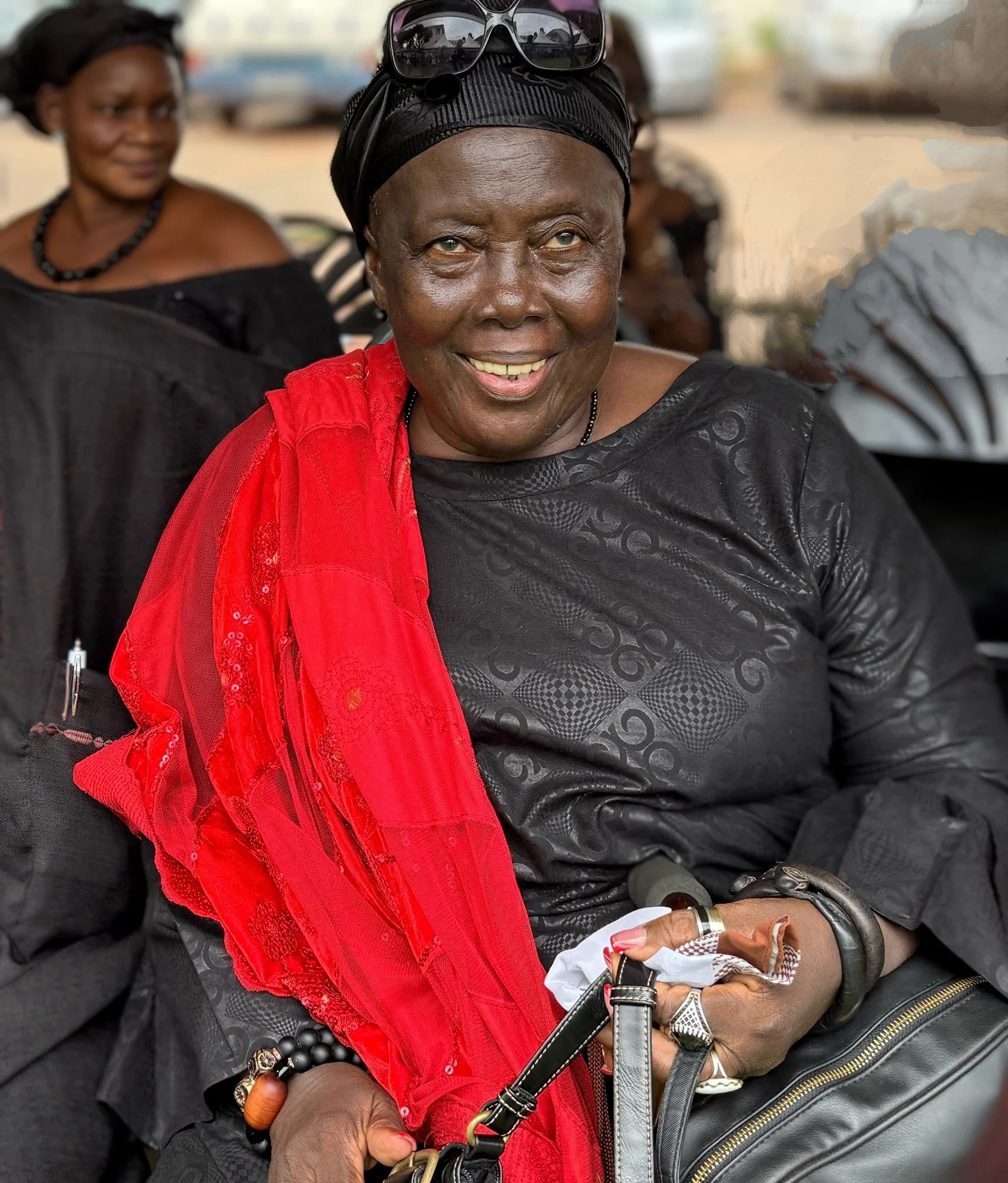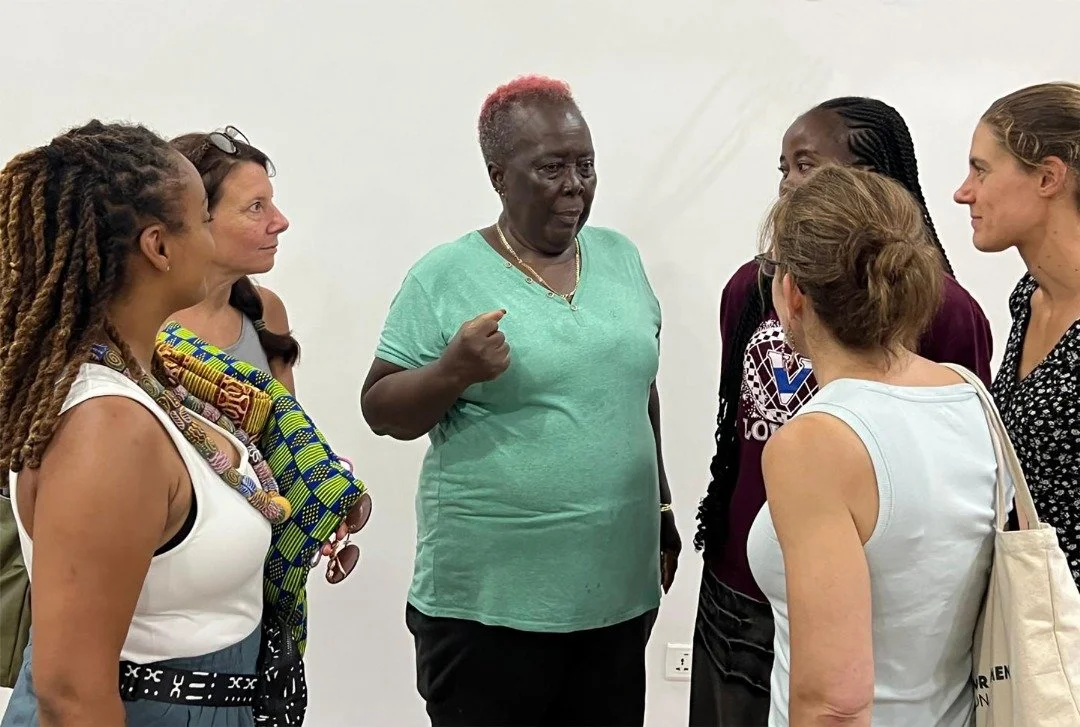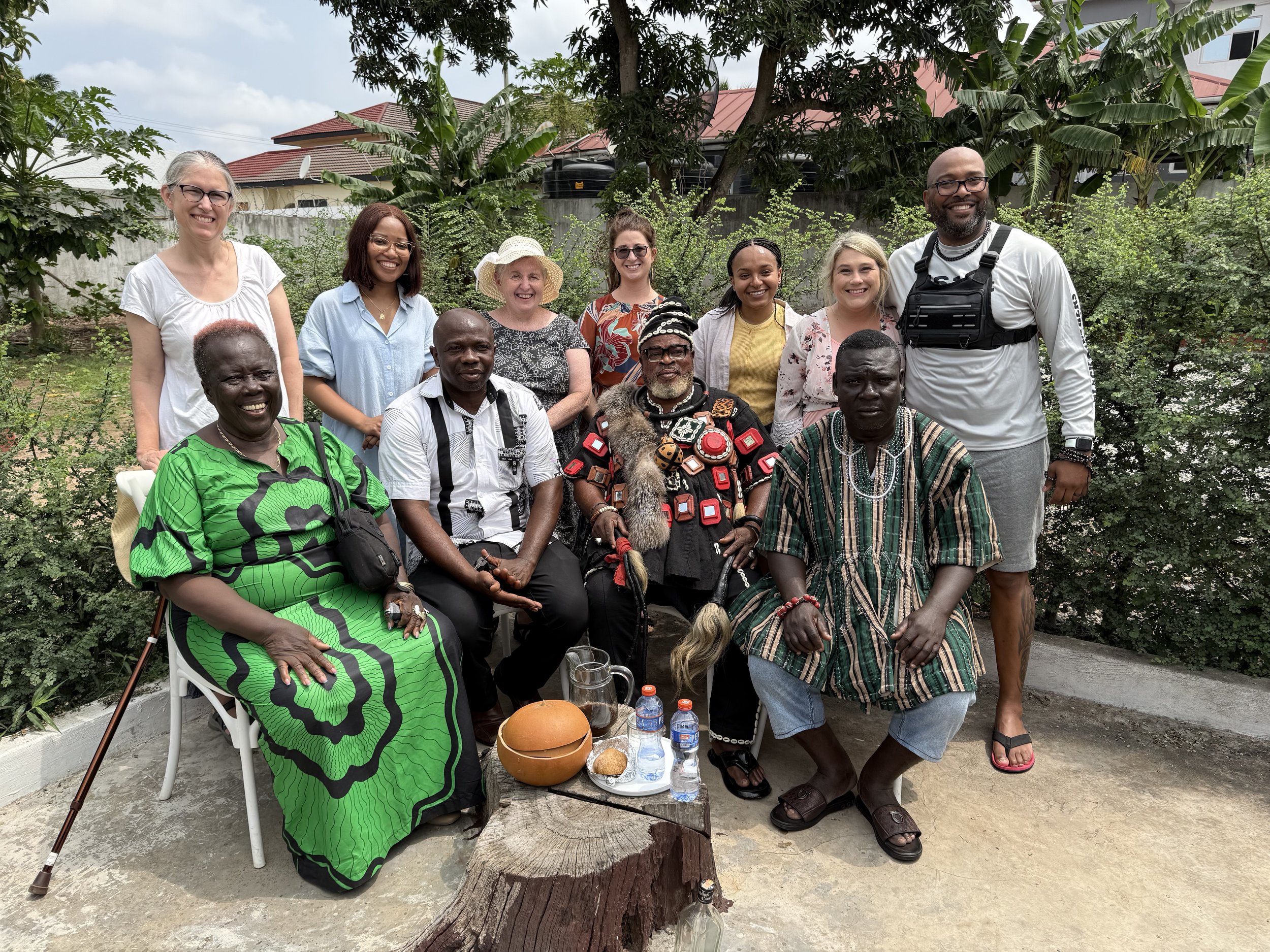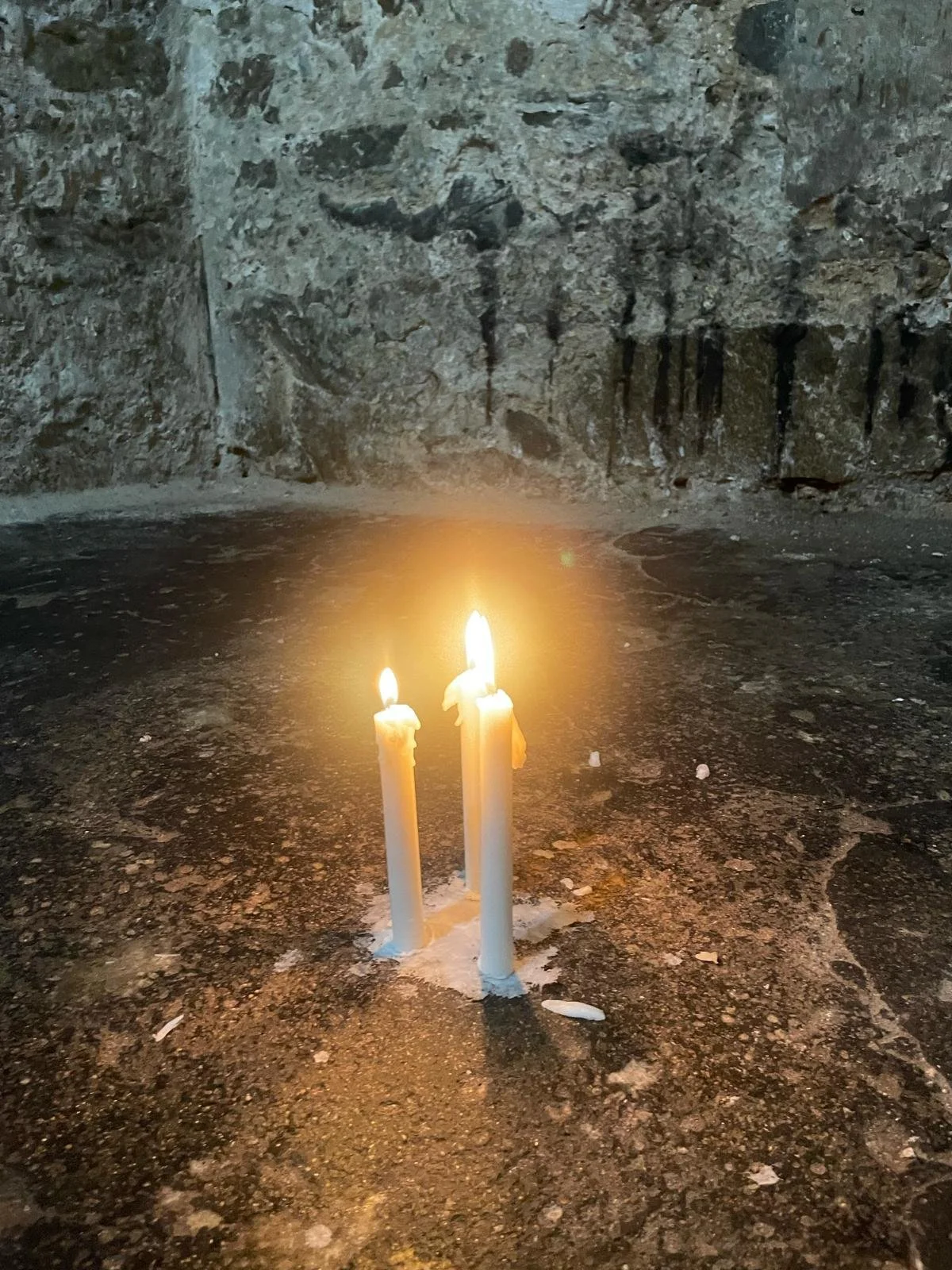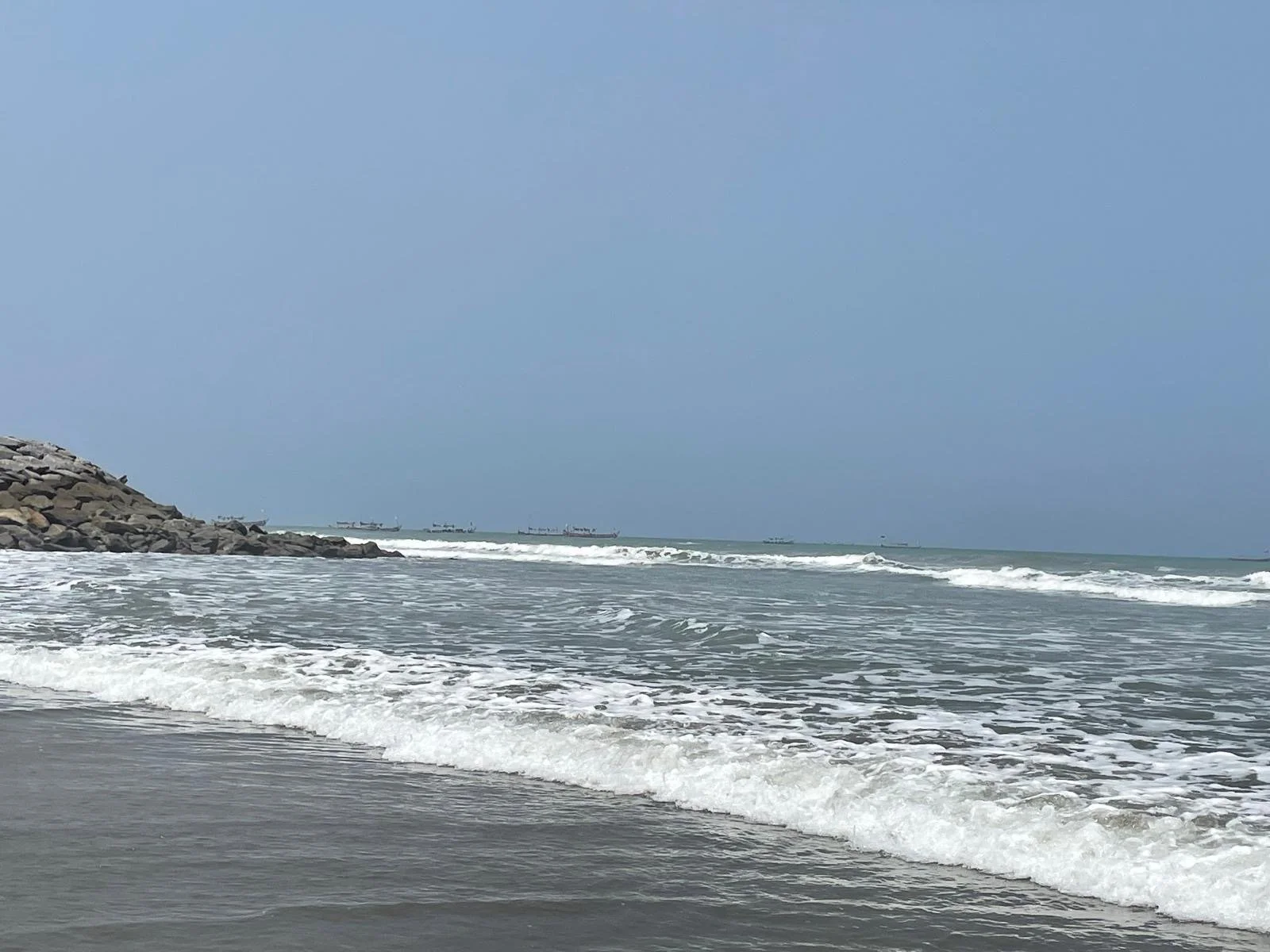Tete Cobblah and David Duane at Anomabo.
I was in Accra, a week after the 2025 Witness Tree Institute program had ended, when during a check-in with Liz, she shared a line from Niall Williams: “When you’re a boy, your grandfather’s chest has a peculiar and profound allure, like a spawn pool for salmon, wherein mysteries are resolved.” It carried me back to childhood when—frail with malaria—I found comfort only in my father’s arms, his humming and heartbeat lulling me to sleep.
Throughout life, I have been blessed to find that same comfort in my wife, children, grandchildren, friends, and communities. This year’s program gathered creative, supportive, joyful participants, and a positive and experienced co-leader, and yet leading in Ghana tested me more than ever. I needed deeper strength, and without knowing it, my two aunts, Bobby and Esther Addo-Doku, provided it. On their chests I again laid my head, and there, in Williams’ words, “mysteries were resolved.”
Esther Addo Doku
Tete (left) and siblings Asiedu, Asiedua and Naa with our Aunty
From the Witness Tree Institute’s beginning these aunts have quietly supported us with faith and grace. Different as they are, together they created a space of nurture and wisdom. They became my havens, my lighthouses. Aunty Bobby, rooted in Ga traditions, has led elders in welcoming our cohorts through naming ceremonies and safeguarded sacred customs. Aunty Sisi, whose wisdom, love and passion for learning shaped me since childhood, opened her home and heart, advising me and grounding us in respect, love, and gratitude.
Their strength has carried not only our cohorts and families but also WTIG’s dreams—especially in hard times. Because of them, I honor the expectations of my deceased parents and ancestors, continuing to lead with love, duty and curiosity. So it is with deep gratitude that I dedicate this last blog to Esther Addo Doku and Roberta Ashley.
Aunty “Bobby” Roberta Halm Lutterodt
Aunty Bobby and some members of Nyansapo Cohort 2025
Aunty Bobby leads Gã welcome ceremony
It seems nearly impossible to explain well the success of this year’s WTIG program: so many moments of laughter, growth, tears, and discovery. Yet it is the stories that endure, carrying the soul of each cohort I’ve been privileged to lead. As we danced and sang at our closing ceremony in Ghana, I hoped that this experience would be transformative for everyone including myself.
A few weeks ago, we all convened from parts of Ghana, Nigeria, USA for our closing Witness Tree Institute Zoom gathering. As part of the meeting, Elsa Wiehe of Boston University composed and read her “found poem” - lines from the 2025 blog reflections - a chorus of voices strung like Aggrey beads. In those lines, we recognized our own words and ourselves, and in that recognition, the gift of community. May this community continue to flourish, supporting both our mission and our personal goals—goals that will enrich our world.
As we settle back into our places of familiarity, let us remember: each person we met during the program in Ghana carried a past, a dream and a story. Stories never truly end—take what speaks to you and let it live on.
Before closing, I must thank those who made this summer’s program run successfully: My able co-leader David Duane, the blog editors and managers Liz Updike Cobblah and Elise Mott; Elsa Wiehe; Dr. Collins Tabiri; Dela Awutey; Kwasi Agyei; Elizabeth Aikins; Anoffoa Cobblah; our faculty led by Professor Obeng; our advisors including Professor Kofi Asare Opoku and Gertrude Fefoame; each loyal member of the WTIG board and Council. Like my aunts, they have been our anchors through the years.
Bue me na menbua wo cohort at Paramount Chief’s Palace, Akropong Akwapim
Nyansapo Cohort with statue of Tetteh Quashie, Mampong-Akwapim
Finally, I thank the 2025 WTIG participants for being part of my own learning. Each year you nourish my growth, and I am grateful. My fellow teachers: it is not only about the goals we reach, but who we become along the way. Like the divine African drummer, we must keep the rhythm alive—with dignity, with pride. Keep your eyes on the prize, and ask yourself: What kind of teacher do I want to be? What kind of ancestor do I hope to become?
By Tete Cobblah
Founder/Director of the Witness Tree Institute of Ghana

